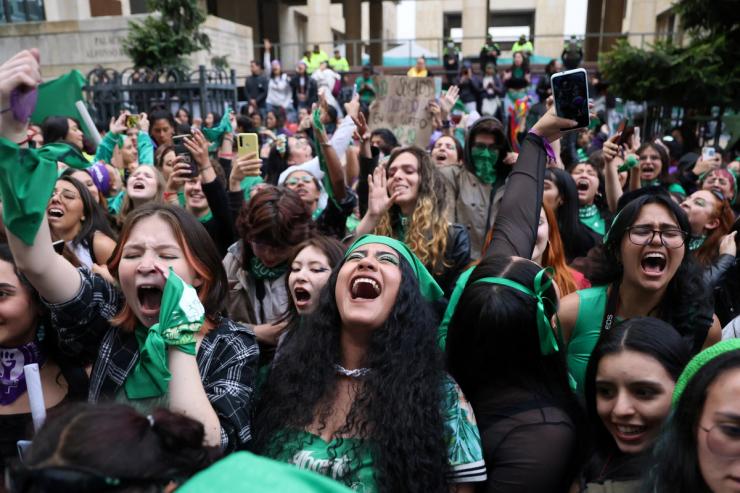The News
While global freedom declined for the 17th year straight, the gap between the number of “free” and “unfree” countries narrowed, according to Freedom House’s latest assessment of international political rights and civil liberties in the world.
The nonprofit’s 50th edition of Freedom In the World report offered a look on how democracy fared in 2022, and suggested that protests against authoritarian governments offered some hope that the fight for democracy may be reaching a turning point.
Here are some key takeaways from the report:
- 35 countries experienced a decline in freedom in 2022 — compared to 60 countries in 2021 and 70 in 2020.
- 34 countries made improvements, narrowing the gap between countries rated as “free” and “not free.”
- 39% of the world’s people live in “not free” countries while 20% live in “free” countries.
- Burkina Faso saw the largest decline in freedom, after witnessing two coups last year. Ukraine, Tunisia, and Peru were among the other countries to experience democratic backsliding.
- The number of countries experiencing forced ethnic change jumped from 19 to 21.
- The number of countries and territories to get a 0 out of 4 for media freedom jumped from 14 to 33.
- Colombia, which decriminalized abortion in 2022, saw the largest improvement in overall freedom status, followed by Slovenia and Kosovo.
Know More
The report suggested that the global crackdown on freedom of expression has contributed the most to a democratic setback.
“It is disheartening to see given how fundamental that right is to democracy,” said Adrian Shahbaz, Vice President of Research and Analysis at Freedom House. Shahbaz added that social media and surveillance technology have increasingly contributed to the decline over the years.
The war in Ukraine has led to widespread human rights atrocities, but Shahbaz said that as long as “brave Ukrainians” fight back and the country has the support of the U.S. and NATO allies, then authoritarian governments like Russia may be beatable.
Similarly in China and Iran, nationwide anti-government protests have exposed the countries’ vulnerabilities. These protests, coupled with the rollback of COVID restrictions and more competitive elections, offer hope that the recession of freedoms in the past 17 years “may be turning a corner,” the report said.
“The demand for freedom is enduring, but we can’t take democratization for granted,” Shahbaz said.


